Svelte in Action
2022年10月7日
轻运行时原理分析
示例代码
// https://svelte.dev/examples/reactive-declarations
<script>
let count = 1;
// the `$:` means 're-run whenever these values change'
$: doubled = count * 2;
$: quadrupled = doubled * 2;
function handleClick() {
count += 1;
}
</script>
<button on:click={handleClick}>
Count: {count}
</button>
<p>{count} * 2 = {doubled}</p>
<p>{doubled} * 2 = {quadrupled}</p>响应式更新流程:
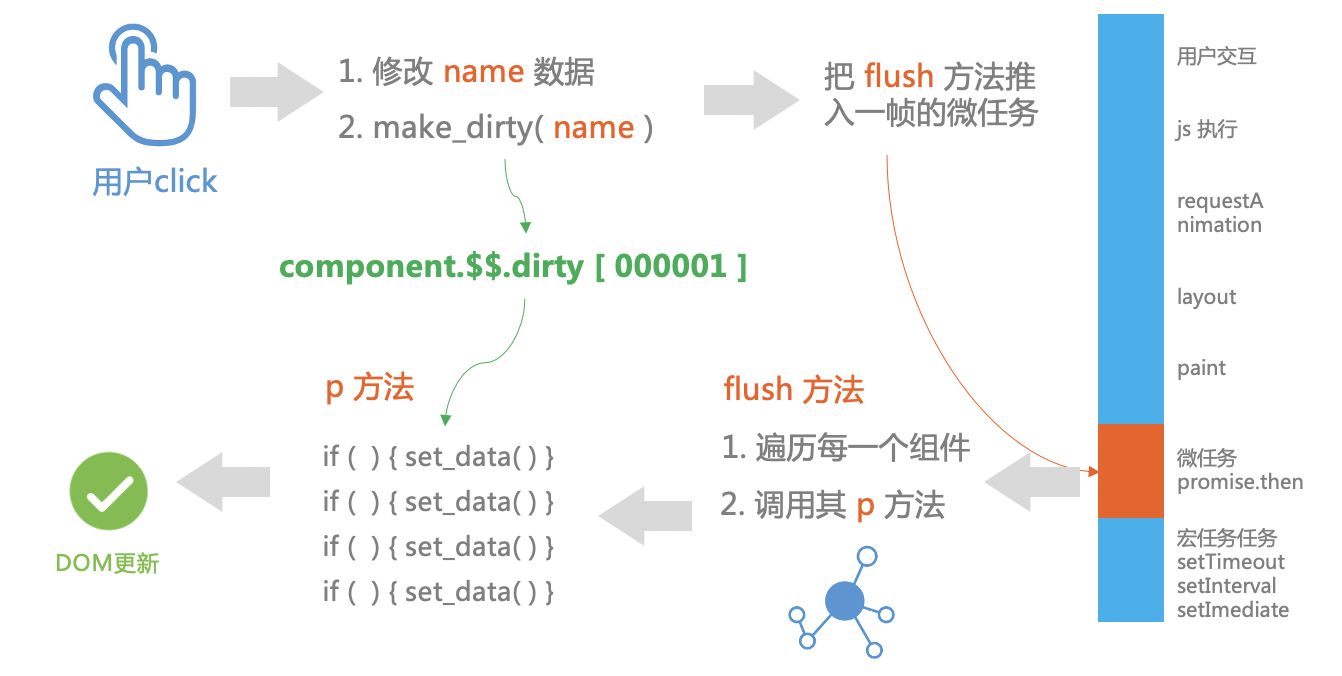
源码解析之编译产物
// JS output
class App extends SvelteComponent {
constructor(options) {
super();
// 编译后的结果中,有两个重要方法:create_fragement 和 instance
init(this, options, instance, create_fragment, safe_not_equal, {});
}
}
function create_fragment(ctx) {
// declare dom var
return {
c() {
// create
},
m(target, anchor) {
// mount
},
p(ctx, [dirty]) {
// update
if (dirty & /*count*/ 1) set_data(t1, /*count*/ ctx[0]);
if (dirty & /*count*/ 1) set_data(t3, /*count*/ ctx[0]);
if (dirty & /*doubled*/ 2) set_data(t5, /*doubled*/ ctx[1]);
if (dirty & /*doubled*/ 2) set_data(t7, /*doubled*/ ctx[1]);
if (dirty & /*quadrupled*/ 4) set_data(t9, /*quadrupled*/ ctx[2]);
},
i: noop,
o: noop,
d(detaching) {
// detach
}
};
}
function instance($$self, $$props, $$invalidate) {
let doubled;
let quadrupled;
let count = 1;
function handleClick() {
$$invalidate(0, count += 1);
}
$$self.$$.update = () => {
if ($$self.$$.dirty & /*count*/ 1) {
// the `$:` means 're-run whenever these values change'
$: $$invalidate(1, doubled = count * 2);
}
if ($$self.$$.dirty & /*doubled*/ 2) {
$: $$invalidate(2, quadrupled = doubled * 2);
}
};
return [count, doubled, quadrupled, handleClick];
}dirty 是 32 位二进制的数组,其中不解构进行或运算的结果如下:
// [0b0001] & 1
// 1
// [0b0001] & 2
// 0
// [0b0010] & 1
// 0
// [0b0010] & 2
// 1
源码解析之脏检查
// Component.ts
const invalidate = (i, ret, ...rest) => {
const value = rest.length ? rest[0] : ret;
if ($$.ctx && not_equal($$.ctx[i], $$.ctx[i] = value)) {
if (!$$.skip_bound && $$.bound[i]) $$.bound[i](value);
if (ready) make_dirty(component, i);
}
return ret;
}
function make_dirty(component, i) {
// 当 dirty 第 0 项为 -1 时,表示这个组件当前是干净的
if (component.$$.dirty[0] === -1) {
dirty_components.push(component);
schedule_update();
component.$$.dirty.fill(0);
}
// dirty 是 32 位二进制的数组
// 先定位到 dirty 的第 n 个元素
// 再取余定位到第 m 位将这位标记为脏
component.$$.dirty[(i / 31) | 0] |= (1 << (i % 31));
}体积和性能分析
产物体积
svelte 由于在编译时将组件直接解释为 js,所以相对来说组件编译后的代码量会比 vue 和 react 编译后要大一些。基于真实的 todomvc 场景构建组件,编译以后 Svelte 的组件输出大小是 Vue 的 1.7 倍,在 SSR 的情况下,这一比例会上升到 2.1 倍。在不开启 SSR 的情况下,大概 19 个组件(一个组件 100 行代码)后就会抹平运行时体积的大小差异,开启 SSR 的情况下,大概 13 个组件后就会抹平差异。
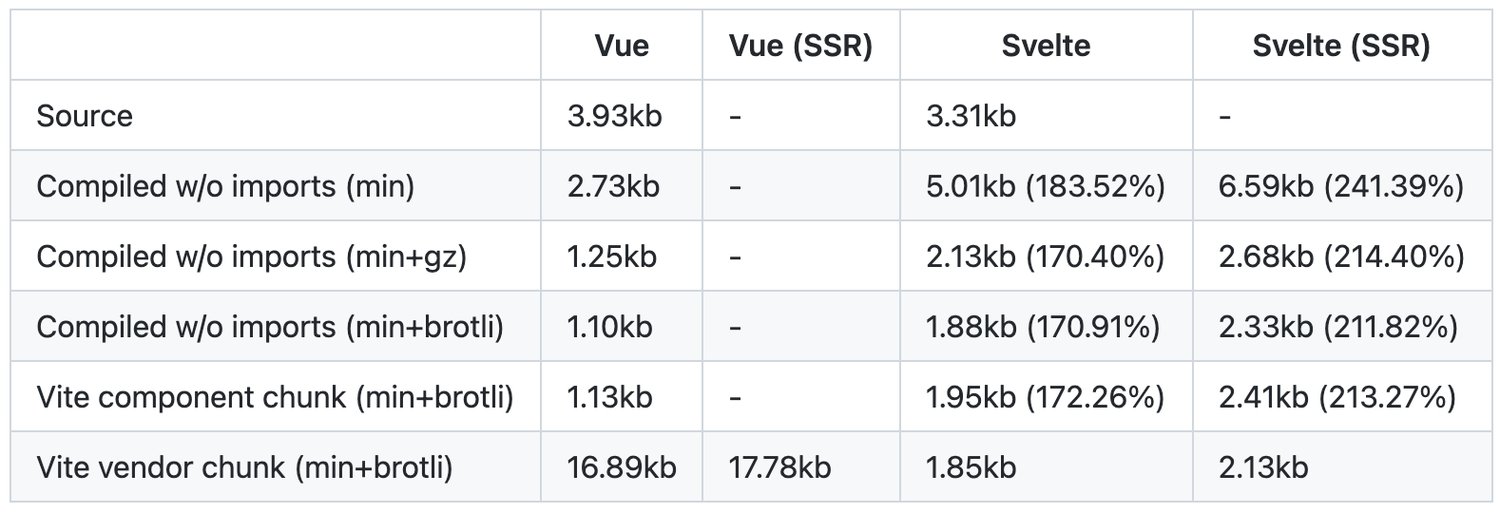
react 和 vue 都是基于运行时的框架,打包后除了用户自己编写的代码之外,还有框架本身的 runtime。而 svelte 是通过静态编译减少框架运行时的代码量,但后者也是用 runtime 的,只是 runtime 远小于前者。如下图,react、vue 和 svelte 的 minzipped 体积分别为:45.4kb、34.3kb 和 1.7kb。

假如有 n 个组件,svelte 每个组件编译后个大小系数为 a,运行时大小为 RT1,vue 或者 react 每个组件编译后的规模为 b,运行时大小为 RT2:
- svelte:体积 = RT1 + a *n
- vue/react:体积 = RT2 + b* n (S为框架运行时的体积)
其中 a > b 且 RT1 < RT2,随着 n 的数量的增多,svelte 项目在体积上并不会占据太大的优势。拟合函数如下图:
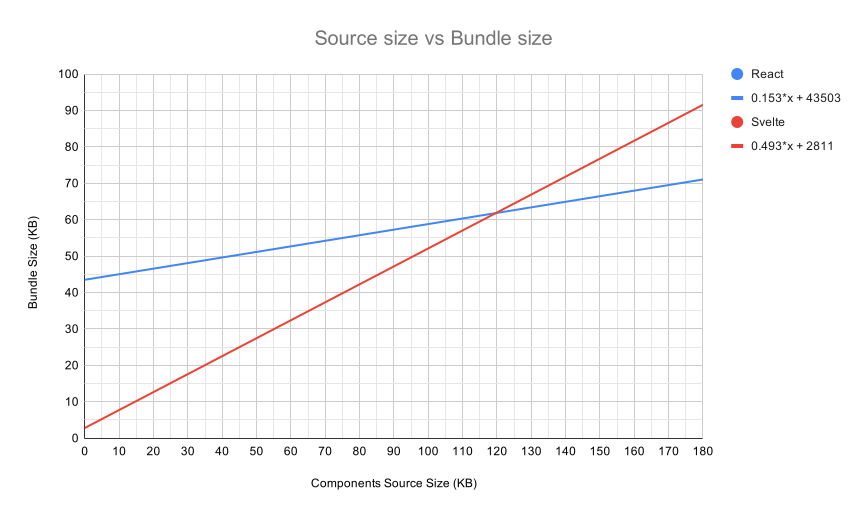
性能分析
基准测试实验:https://github.com/krausest/js-framework-benchmark
运行时性能指标:
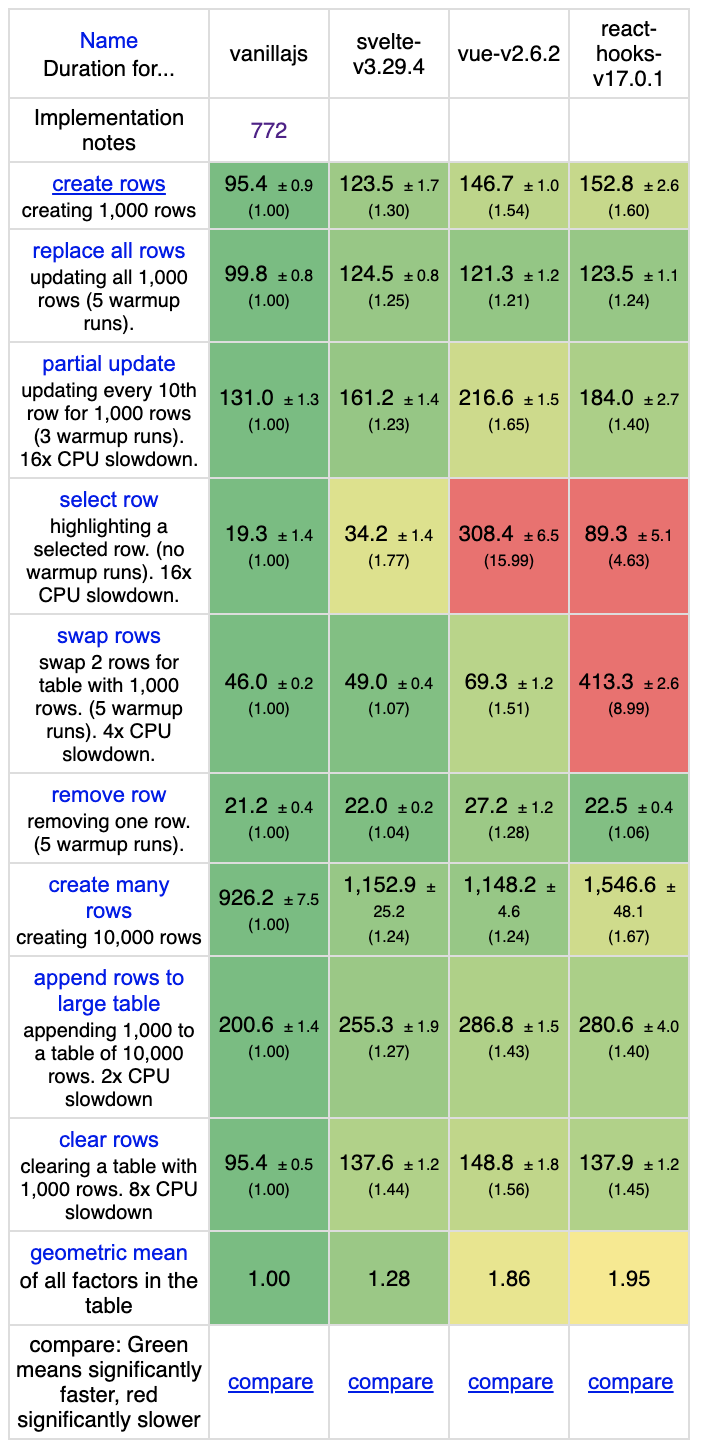
启动性能指标:
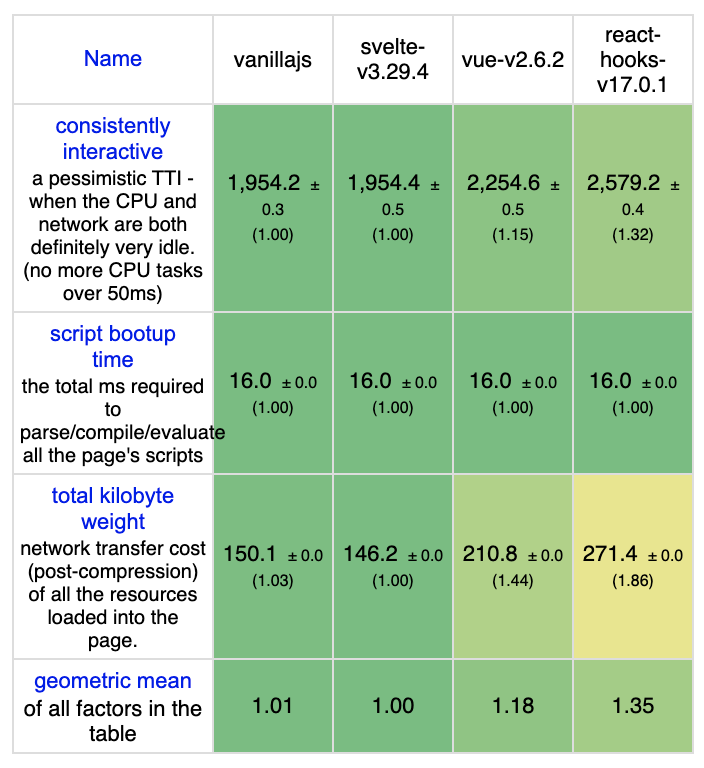
内存指标:
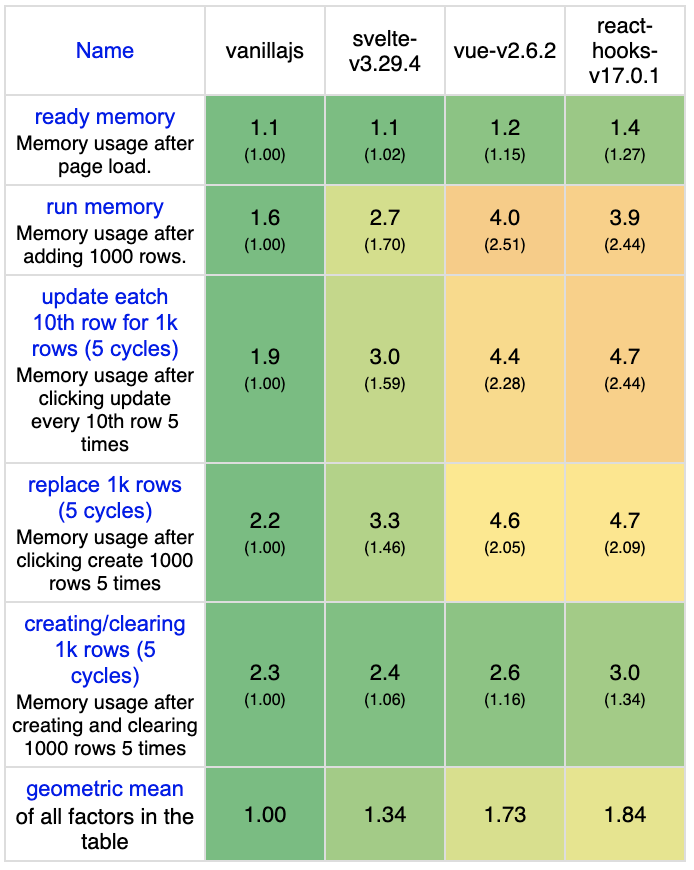
结论:svelte 不依赖 virtual dom,在 1000 行列表的场景的表现都是由于 react 和 vue 的
业务应用场景
图表需求
视觉稿如下图:

应用依赖:svelte + echarts + web-core(项目组维护),分别用于响应式 UI 编写、图表绘制、数据上报。bundle 分析如下图:
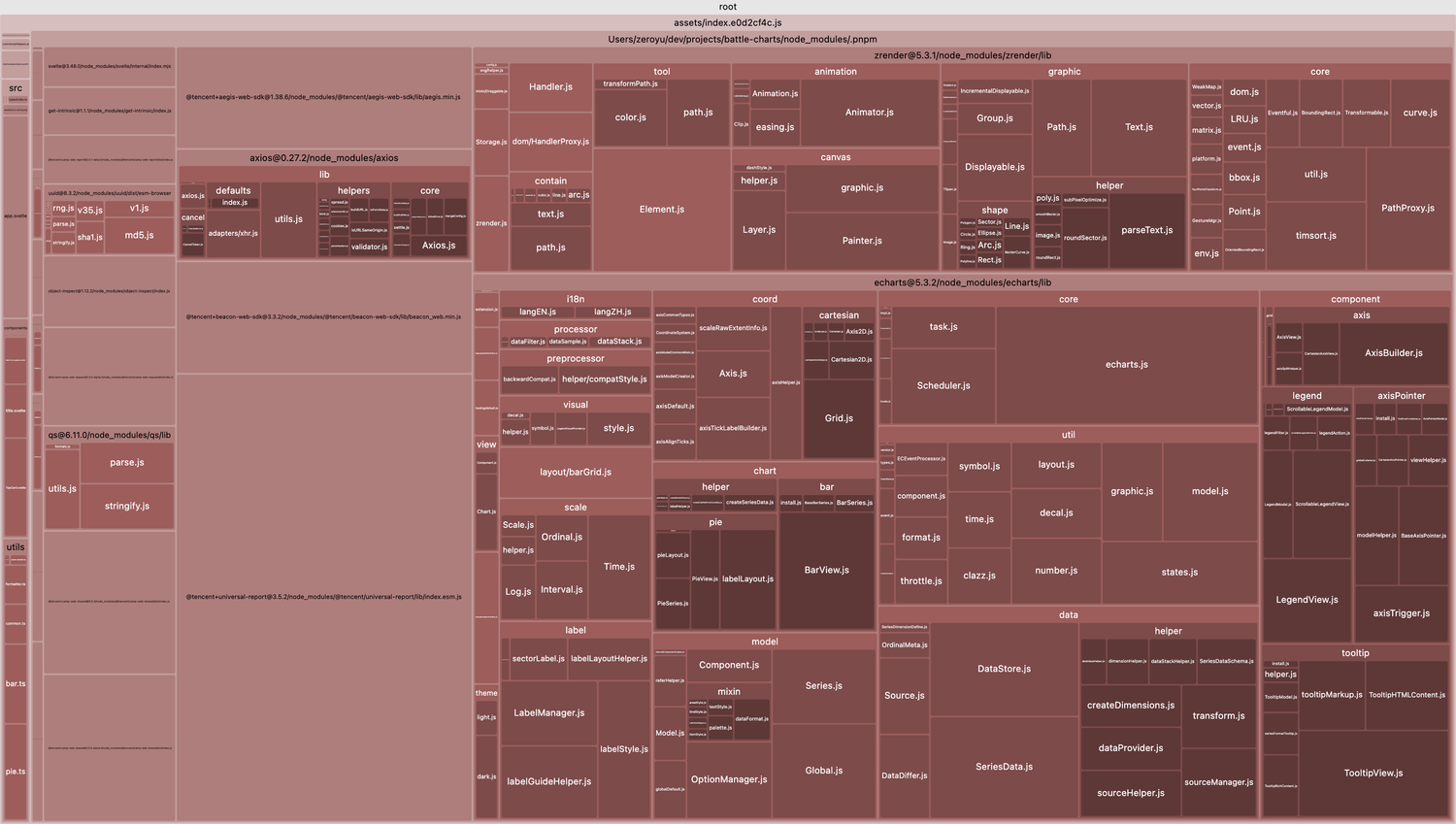
经过分析,该应用产物的第三方依赖是 echarts (67.7%) 和 web-core (29.9%) 共近 98%,而 svelte (0.48%) 和组件代码 (1.9%) 共近 2%。主要依赖除了必须不可的 echarts,还有存在优化空间的 web-core 库。而 svelte 和组件代码的大小是很令人满意的。
Web Components
生态
twitter 账号关注数量:
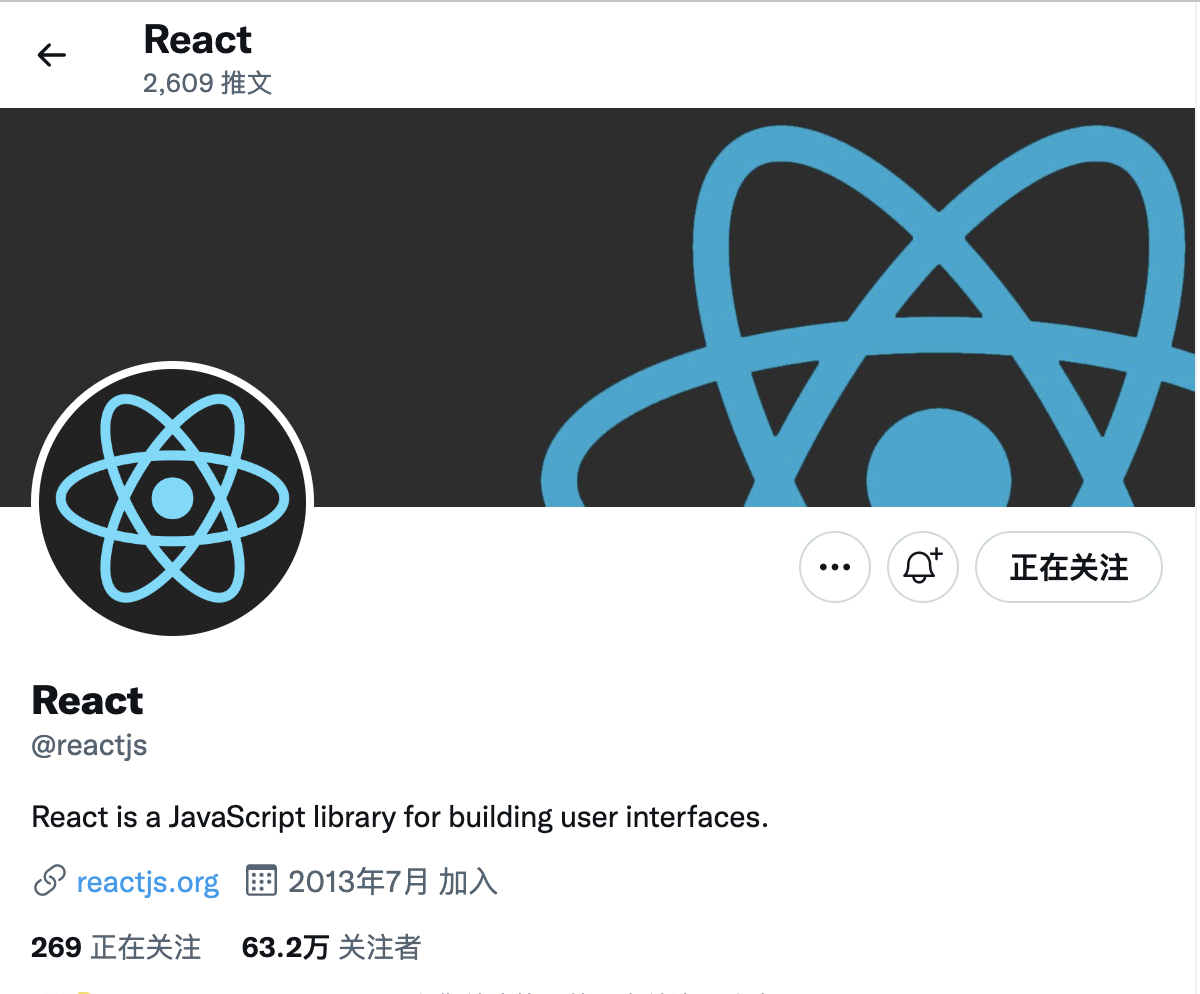
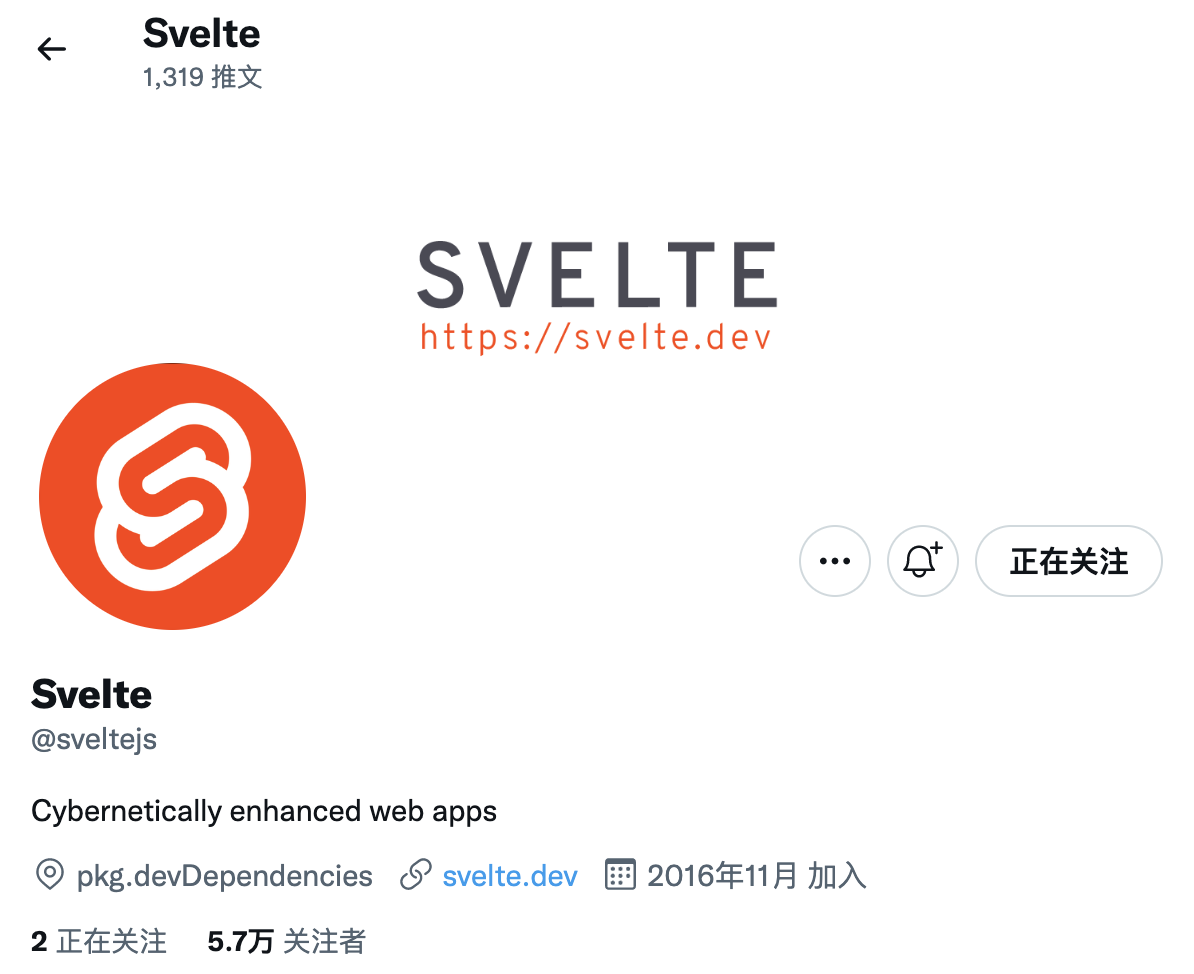
github 相关生态:
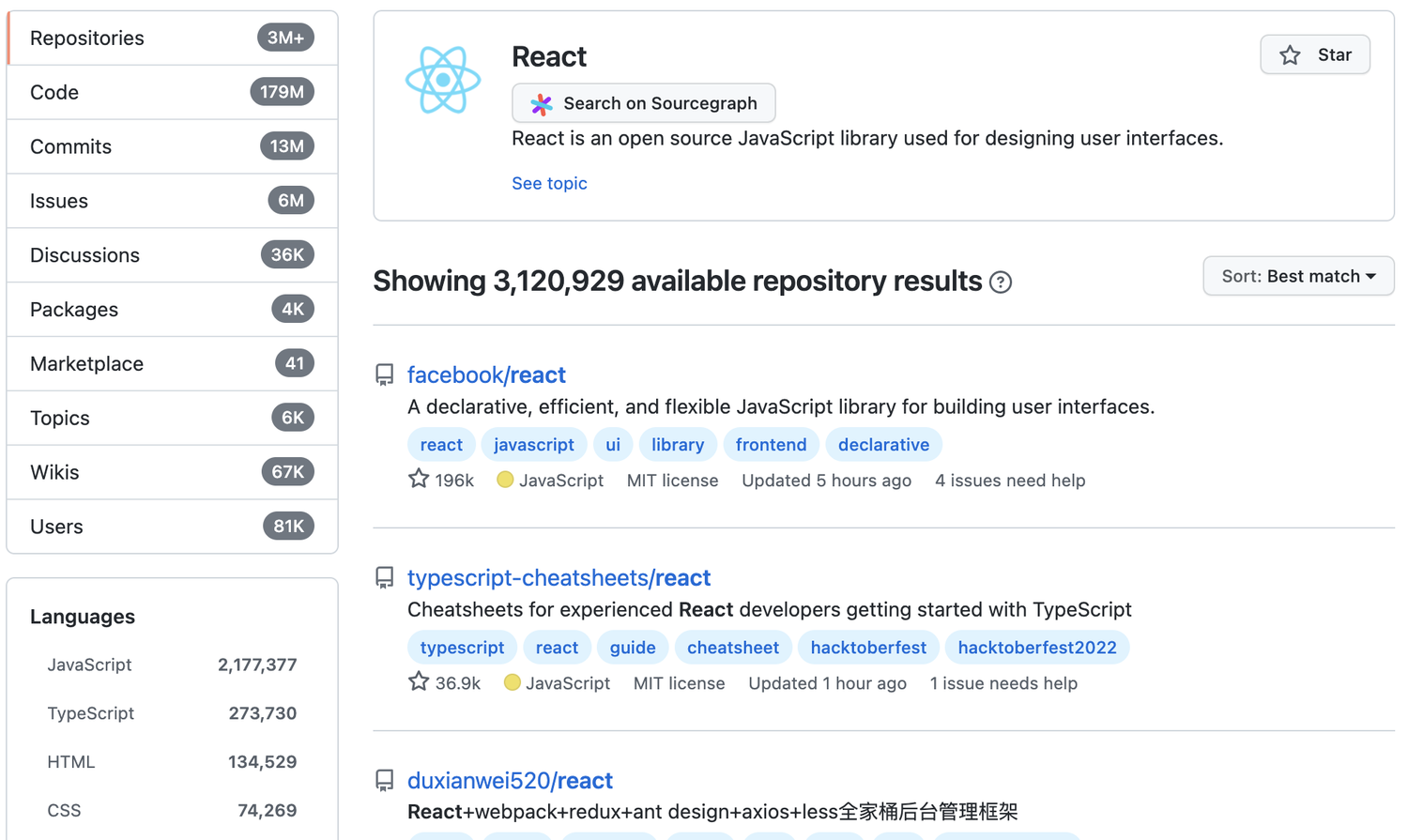
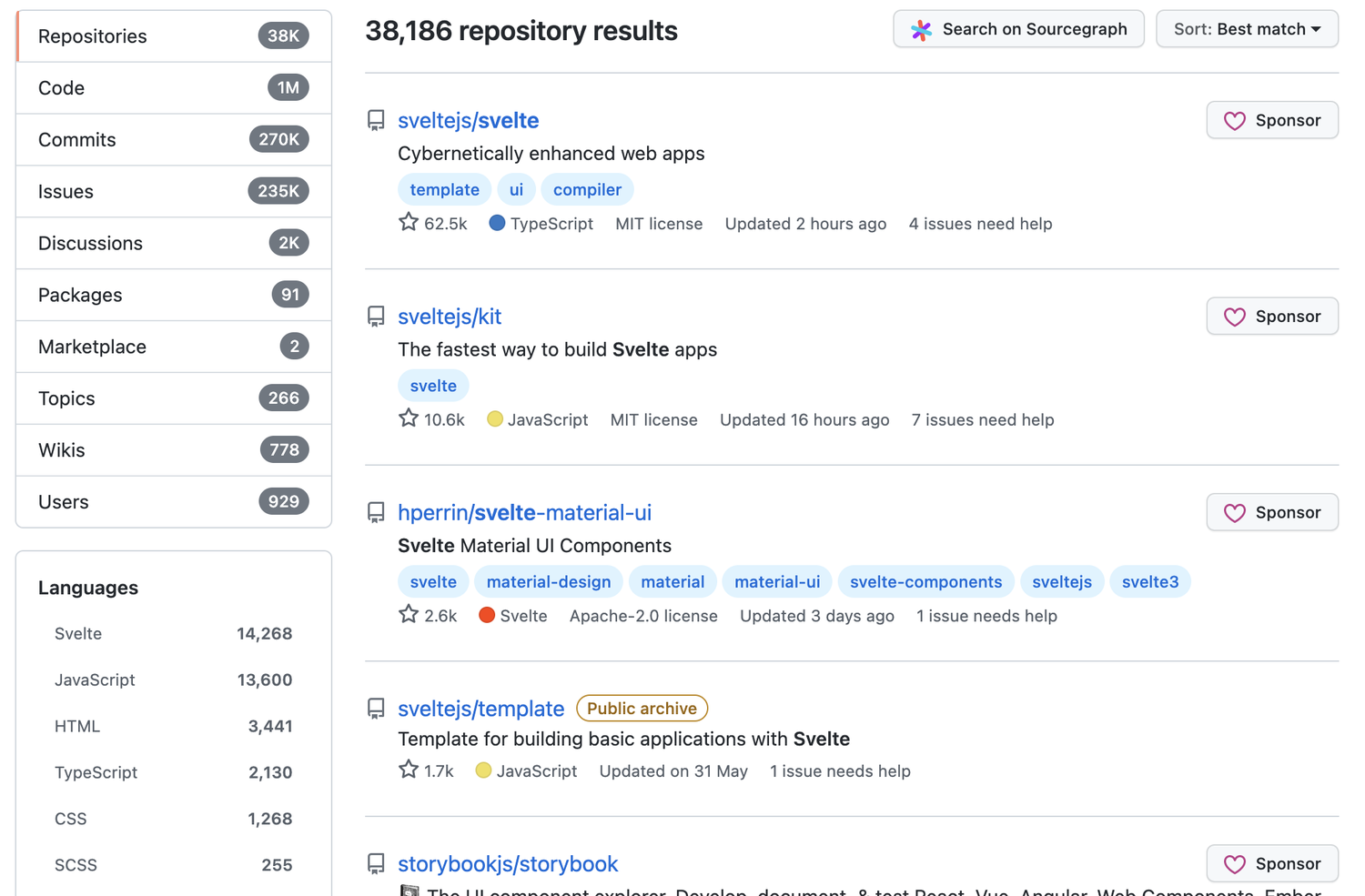
参考
- https://www.zhihu.com/question/53150351
- https://www.zhihu.com/question/460278146
- https://javascript.plainenglish.io/javascript-frameworks-performance-comparison-2020-cd881ac21fce
- https://www.teqng.com/2022/02/20/svelte-%E5%8E%9F%E7%90%86%E6%B5%85%E6%9E%90%E4%B8%8E%E8%AF%84%E6%B5%8B/
- https://github.com/halfnelson/svelte-it-will-scale/blob/master/README.md
- https://github.com/yyx990803/vue-svelte-size-analysis